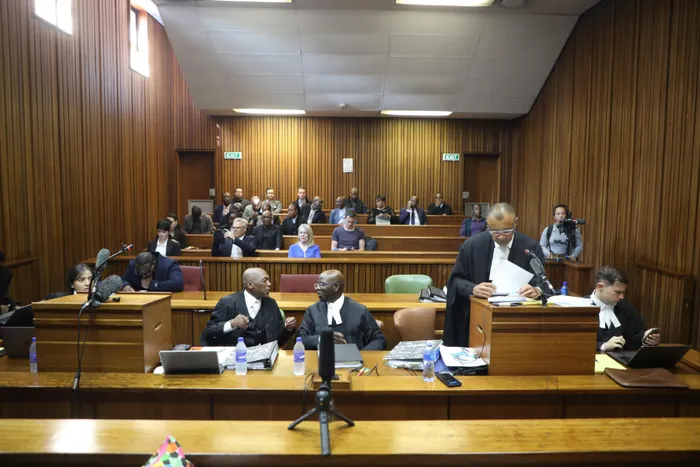
Lawyers for the DA were in court last week to challenge the amendments to the Employment Equity Act 55 of 1998, introduced by the Employment Equity Amendment Act 4 of 2022. When coalition partners fail to resolve their disputes internally, courts should not be battlegrounds for political differences, argues the writer.
Image: Oupa Mokoena / Independent Newspapers
GAUTENG High Court Judge President Dustan Mlambo was on to something with the directive that compels mandatory mediation in civil matters before opting to have a judge presiding over the case.
Of course the directive has not gone unchallenged by some in the legal fraternity who believe that among other things, such an instruction makes accessing the courts difficult.
Judge Mlambo’s move is informed by the fact that most of the civil matters that are allocated to a judge get settled on the day they are to be heard, meaning that judges spend hours preparing for a case only for it to be settled.
This takes away the time they could have spent reducing the alarming backlog. As of February 2025, the Division’s Civil Trial roll has trial dates issued as far ahead as 2031.
Now, with the DA and the ANC unable to resolve their Government of National Unity (GNU) disputes, perhaps the courts should start following Judge Mlambo’s lead and consider how they will deal with the political bickering that should be settled politically in the first place. The VAT hike court case is a good reference point. A full bench presided over the case only for parties to reach a settlement.
When political coalition partners fail to reach consensus on basic issues, courts should not be dragged into the battleground.
The establishment of the GNU will
mark a year in the coming weeks, yet not a single contentious matter has this coalition government resolved internally without threats of litigation.
It then begs the question, how can there be a functioning government when the parties forming the government are more in courtrooms than in communities where citizens long to have basic services delivered?
The absence or failure to use whatever internal dispute resolution mechanisms that exist means that our courts effectively run the country. What does this make of the GNU when every decision that is made ends up before the courts?
It simply proves what the coalition government critics have maintained; that the idea of the GNU was never intended to advance the country in the first place. Rather it was an attempt to stop an ANC faction from removing President Cyril Ramaphosa over the Phala Phala scandal. Whatever may have been the case, the GNU has not done much to disprove that narrative.